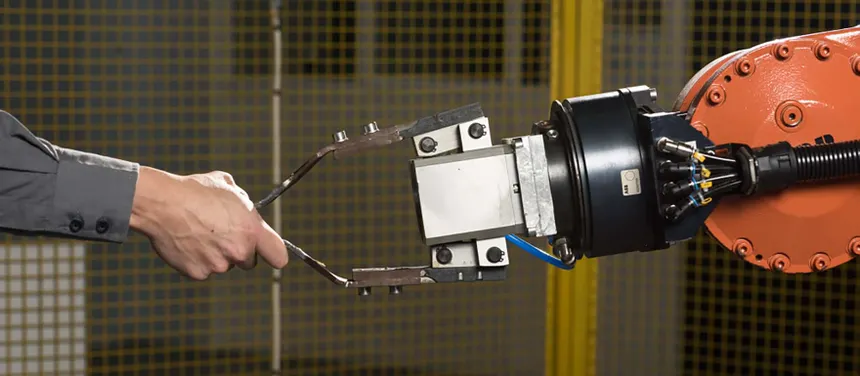Artificial Intelligence (AI) is growing at an unprecedented pace, transforming industries, automating jobs, and even changing how we interact with technology. While AI advancements bring numerous benefits, they also raise serious ethical concerns that must be addressed before it’s too late. From biased decision-making to mass surveillance, AI’s rapid evolution demands urgent ethical discussions and solutions. Here’s a deep dive into the most pressing ethical challenges and what they mean for the future of humanity.

1. AI and Job Displacement: Are We Ready for the Impact?
The Rise of Automation
- AI-powered robots and software are replacing human workers across industries.
- Automated customer service, self-driving cars, and AI-driven content creation are just a few examples.
- Companies prefer AI due to efficiency, accuracy, and cost-effectiveness.
The Ethical Concern
- Mass unemployment may widen the wealth gap.
- Workers in low-skill jobs are at high risk of losing their livelihoods.
- Governments need policies to reskill and support displaced workers.
Potential Solutions
- Universal Basic Income (UBI) to support unemployed individuals.
- Government and private sector initiatives for AI-driven job reskilling.
- Ethical AI development ensuring human workers are integrated, not replaced.
2. AI Bias and Discrimination: Who Gets Left Behind?
How AI Develops Bias
- AI learns from historical data, which may contain societal biases.
- AI-driven hiring tools have been found to discriminate against women and minorities.
- Facial recognition technology often fails to identify people of color accurately.
Ethical Concerns
- AI discrimination can reinforce existing inequalities.
- Unfair credit scoring, biased hiring, and racial profiling are major risks.
- People may face unjust consequences due to biased AI algorithms.
Possible Fixes
- Diverse training datasets to reduce bias.
- Regular AI audits and transparency in algorithmic decision-making.
- Regulations requiring fairness in AI applications.

3. AI and Privacy: Is Big Brother Watching You?
AI-Powered Surveillance
- Governments and corporations use AI to track individuals through facial recognition.
- AI collects vast amounts of data from social media, smart devices, and online activity.
- Predictive policing and AI-driven surveillance raise concerns about civil liberties.
Privacy Concerns
- Citizens lose control over their personal data.
- AI-driven data breaches can expose sensitive information.
- Mass surveillance threatens freedom and democracy.
How to Protect Privacy
- Strong data protection laws (e.g., GDPR, CCPA).
- AI regulations to prevent misuse of surveillance technologies.
- Increased user control over personal data sharing.
4. AI in Warfare: A Future of Killer Robots?
The Rise of Autonomous Weapons
- AI-powered drones and robotic soldiers are being developed for military use.
- Autonomous weapons can make life-and-death decisions without human intervention.
- AI-driven cyberattacks can disrupt entire nations.
The Ethical Dilemma
- AI weapons can cause mass destruction with minimal accountability.
- The lack of human oversight raises concerns about war crimes and morality.
- Countries engaging in an AI arms race may destabilize global peace.
Solutions to Consider
- International treaties banning AI-controlled autonomous weapons.
- Human oversight must be mandatory in all AI-driven military decisions.
- Strict regulations to prevent AI misuse in warfare.

5. AI and Creativity: Who Owns AI-Generated Content?
The Growth of AI Creativity
- AI is creating art, music, literature, and even movies.
- AI-generated content is indistinguishable from human-created work.
- Companies use AI to generate marketing materials, scripts, and news articles.
The Copyright Problem
- Who owns AI-generated works—the developer, the user, or the AI itself?
- AI-generated art may steal from human artists without proper credit.
- Copyright laws are struggling to keep up with AI’s capabilities.
Possible Solutions
- Legal frameworks for AI-created intellectual property.
- Ethical guidelines ensuring AI does not plagiarize or exploit human artists.
- Clear attribution policies for AI-generated content.
6. AI and Decision-Making: Should We Trust Machines Over Humans?
AI in Critical Sectors
- AI is now making decisions in healthcare, law enforcement, and finance.
- AI doctors diagnose diseases, judges determine bail amounts, and AI algorithms approve loans.
- Some AI decisions have proven more accurate than human judgments.
The Ethical Risks
- AI lacks human empathy and moral reasoning.
- Flawed AI decisions can have life-altering consequences.
- Relying too much on AI may erode human judgment and accountability.
How to Ensure Ethical AI Use
- AI should be used to assist, not replace, human decision-making.
- Regular auditing and transparency in AI decision-making processes.
- Regulations ensuring AI aligns with human values and rights.
7. The Future of Ethical AI: What Can We Do?
Global Regulations and AI Ethics
- Countries must collaborate to create ethical AI standards.
- Tech companies need to prioritize ethical AI development.
- AI must be aligned with human values, rights, and fairness.
The Role of Society
- Public awareness and discussions on AI ethics.
- Consumers should demand ethical AI from companies.
- Governments should invest in AI research focused on ethical development.
Conclusion: AI’s Future is in Our Hands
AI is transforming our world at an unprecedented speed, bringing both incredible advancements and serious ethical challenges. If left unchecked, AI could reinforce biases, threaten privacy, displace millions of workers, and even lead to dangerous autonomous warfare. However, with the right regulations, ethical guidelines, and public awareness, we can shape AI to be a force for good rather than harm.
The time to act is now—before AI makes decisions for us that we can’t reverse.
Do Follow USA Glory For More Updates.






